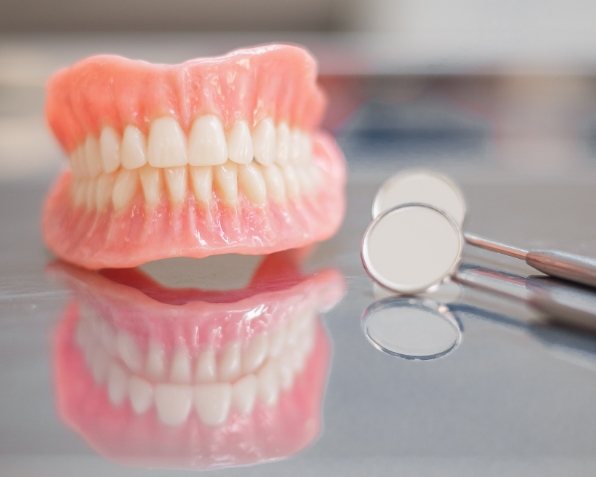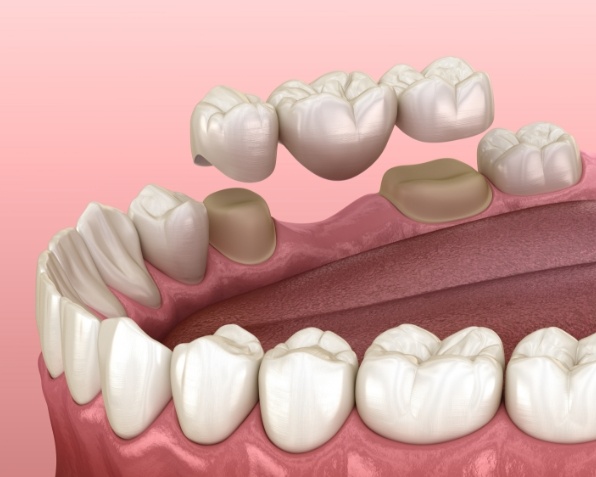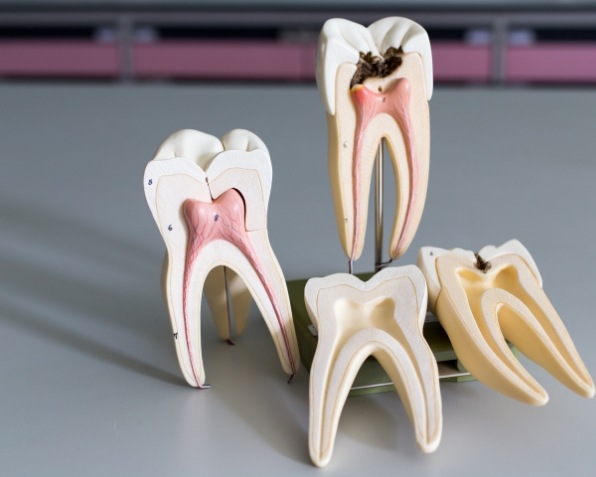Post-Op Dental Instructions – Washington, PA
A Guide to Successful Recovery

Undergoing a dental procedure of any kind can raise many questions. One of the most common is, “What will recovery be like?” Each service requires unique steps to ensure swift and successful healing. This is why our doctors have taken the time to create comprehensive guidelines for the various treatments listed below. You are invited to click on the service you are preparing to receive so that you can learn more about what you can expect after returning home.
Immediate Dentures

Wearing dentures for the first time can be an initially overwhelming experience. We are here to make your transition to dentures as pleasurable as possible.
You must leave the dentures in the mouth for 24 hours after they are inserted.. Pain experienced as a result of the extraction of teeth will not be alleviated by removing the dentures. If you remove the dentures, swelling may occur, and you may be unable to reinsert the dentures.
If several teeth have been extracted, swelling and discomfort are to be expected. Swelling may be reduced by holding ice packs against the face in the area of the extractions for no longer than 15 min each hour. You should also take medication as prescribed.
The dentures will act as a bandage and help to limit bleeding and prevent the breakdown of the blood clots that form in the tooth sockets. Bleeding normally is minimal; however, even a few drops of blood will redden saliva. Your diet for the first 24 hours should be restricted to liquids or soft foods. Gradually, you can increase the substance of your diet as healing progresses to include additional nutrients.
Your bite (the way the upper and lower teeth come together) usually will be imperfect when you first get your dentures. Although major imperfections will be corrected at the time of the insertion and the appointments 24 and 48 hours after insertion, the final refinement cannot be accomplished until the swelling has disappeared (4 to 7 days).
Care after insertion varies for each patient depending on general health, the number of teeth removed, the difficulty experienced in removing the teeth, and the anatomic form of the remaining ridges and soft tissues. You may be seen 24 hours after insertion of the dentures for adjustments of the denture borders and bases in areas where excessive pressure is being applied to the underlying tissues. An appointment 48 hours after insertion of the dentures is also needed for many patients. Additional appointments for adjustment of the denture bases and the occlusion are scheduled to meet the needs of each patient.
After the 24-hour appointment, the dentures should be removed for cleaning after meals and at bedtime. Always hold the dentures over a sink that is partially filled with water. Scrub the tissue surface (underside) of the dentures with cotton gauze, liquid soap, and water. Brush the external surfaces and the teeth of the dentures, and, for maximal cleanliness, brush your tongue and the roof of your mouth. Always keep the dentures wet while they are out of the mouth.
Two to five days after insertion, you should begin removing the dentures at night. Removing the dentures allows small blood vessels to enlarge and provide nourishment to the tissues supporting the dentures.
Dental Crowns and/or Bridges

Crowns and bridges usually take two or three appointments to complete. At the first appointment, the teeth are prepared. Temporary crowns or bridges are placed to protect the teeth while the custom restoration is being made. After each appointment when anesthetic has been used, your lips, teeth, and tongue may be numb for several hours. Avoid any chewing until the numbness has completely worn off.
On rare occasions, temporary crowns come off. Call us if this happens and keep the temporary so we can re-cement it. It is very important for the proper fit of your final restoration that temporaries stay in place.
It is normal to experience hot, cold, and pressure sensitivity after each appointment. Your gums may be sore for several days. Rinse three times a day with warm salt water (a tsp. of salt in a cup of warm water, rinse-swish-spit) to reduce pain and swelling. Use medication only as directed.
To help keep your temporary in place, avoid eating sticky (especially gum) and hard foods, and if possible, chew only on the opposite side of your mouth. It is important to continue to brush normally, but floss very carefully and remove it sideways to prevent the removal of the temporary crown.
If your bite feels uneven, if you have persistent pain, or if you have any other questions or concerns, please call our dental office.
Root Canal Therapy

Postoperative discomfort is sometimes experienced after root canal treatment. This is due to irritation of the bone surrounding the tooth and may range from mild discomfort in the area to an occasional episode of considerable pain. This discomfort will usually maximize in approximately 48-72 hours and then subside. Please avoid chewing on the treated tooth for a few days.
If a throbbing sensation occurs, please keep your head elevated and place extra pillows under your head when lying down. Avoid strenuous activity as much as possible.
If swelling of the gum is present or should appear after a treatment visit, please rinse the area every 1-2 hours with a solution of warm salt water prepared by adding a teaspoon of salt to an 8 ounce glass of warm water.
If swelling of the face is present or should appear, apply an ice pack to the area for 5 minutes every 1/2 hour.
If antibiotic medication has been prescribed, please take it as indicated until you have finished ALL of the medication. If you encounter any difficulty breathing, a skin rash, or a gastric disturbance should occur, please discontinue the medication and call the dental office.
Discomfort from root canal treatment is normally due to inflammation around the tooth. The best treatment for this inflammation is ibuprofen (Motrin, Advil). To be most effective, ibuprofen should be taken in the following manner:
- 400mg should be taken immediately following the procedure.
- 400mg should be taken every 6 hours for the next two days (48 hours). Ibuprofen should be taken with food. A good rule of thumb is to take an ibuprofen tablet with breakfast, lunch, dinner, and before going to bed.
- After two days, you can continue to take ibuprofen if you are still having discomfort.
If you have pain that the ibuprofen is not able to relieve or if you have pain that is keeping you awake at night, please call our office.
Since a temporary filling is placed in your tooth after the procedure, the top layer will often wear away and give you the feeling that the filling has fallen out. If the temporary can still be seen, then the filling has not fallen out. If you cannot see the filling and you feel that it has fallen out, please call our office.
It is very important to make your follow-up appointments after your root canal treatment. There is often little tooth structure left after a root canal and the tooth is prone to fracturing. A permanent restoration (often a crown) is necessary to resist fracture and give you the best possible result.
If any additional questions should arise after your visit, please do not hesitate to call our office.
